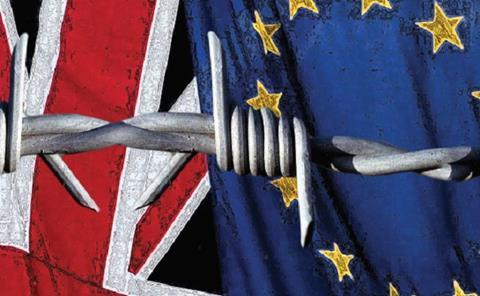Ensuring firms can continue to work across territories must be a Brexit priority, says Ron Downey

Friday 24 June was a day of deep shock for many Britons, Europeans, other UK residents and business leaders around the world.
It was the day we all learned that Britain had voted to exit the European Union.
As the founder and chief executive of a global technology company headquartered in London, this was particularly alarming.
Now, with Theresa May moving towards triggering Article 50 around March next year, our minds are acutely focused on the many scenarios that we all might be faced with.
The feeling I share with many colleagues is that it is hard to make a case one way or another about Brexit and the extent to which the industry will be in a better or worse position post-exit.
That said, the impact is already being felt - clearly evidenced by the pound recently falling to a near 31-year low.
Limited access to EU talent is a major concern for our business and one that must be worrying others.
More than half of our London staff are European.
We employ a diverse group who are able to communicate with our clients in a wide variety of European languages. This is valuable in a highly technical sector where specific jargon and cultural etiquette will remain essential.
Furthermore, for our company, the plurality of nationalities in our UK office was less of a choice and more of a manifestation of the scarcity of experienced and talented people in the market.
Red tape
If any of our EU team members was forced to apply for a visa and go through burdensome red tape to stay in London, it would undoubtedly have a negative impact on their life, and our business.
One of the choices available to companies like ours would be to relocate non-British EU staff to another European country - which would be costly.
Unfortunately for the UK, if companies choose to leave, it means a loss of corporate and income tax revenue, a loss of local spending by those relocating, and the negative societal impact associated with bidding farewell to highly skilled members of the UK tech hub community.
We presently benefit from outstanding working relationships with our clients in EU countries, but they are already asking about our contingency plans to ensure continuing relationships.
Almost all of them express concern over the impending commercial challenges possibly associated with trading with our UK operation.
Fortunately, we have specialist marketleading software in a relatively small industry globally.
As such, we are certain that demand will remain high - we may just need to trade with selected new and existing European clients through yet-to-be-established sibling operations in the EU.
And then there is the plight of the producer, distributor and broadcaster industry friends and clients.
Cutting ties with the EU will almost certainly have an impact on funding and is sure to make it more complicated for British and European production companies to sell content across territories.
We have to rally together and work for the best possible Brexit outcome - one that ensures we can all continue to work across borders.
Ron Downey is chief executive and co-founder of Massive Interactive

























No comments yet